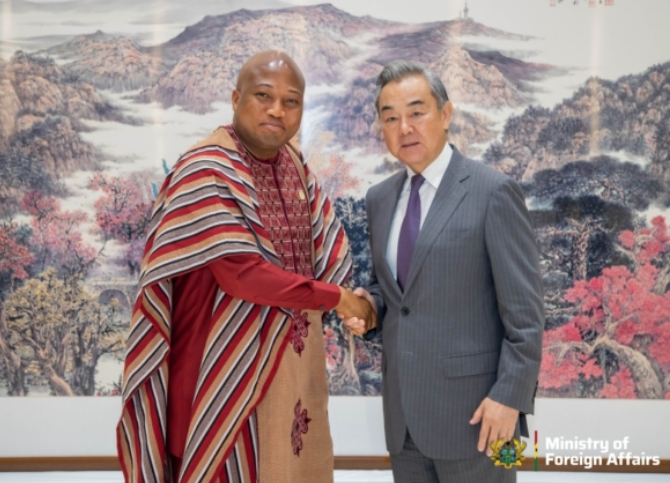Ghana has made significant strides in strengthening its economic partnership with China, securing a 0% tariff on all its exports to the Asian powerhouse.
This milestone was announced by the Minister of Foreign Affairs, Samuel Okudzeto Ablakwa, in a post on X (formerly Twitter) on Wednesday.
The new tariff regime, which covers 100% of goods originating from Ghana, is expected to significantly boost trade volumes, stimulate job creation, and empower a new generation of Ghanaian entrepreneurs.
The development is particularly noteworthy as China remains Ghana’s leading trading partner, with bilateral trade exceeding US$11 billion in 2024 alone. The tariff elimination opens new doors for Ghanaian producers to tap into the world’s second-largest consumer market.
Beyond trade, Mr Ablakwa revealed that bilateral discussions also focused on major industrial initiatives aligned with President Mahama’s vision for national transformation.
A central point of discussion was the exploitation of Ghana’s estimated 900 million tonnes of bauxite reserves to establish an integrated aluminium industry. The project is expected to be supported by modern rail infrastructure to facilitate the efficient transportation of raw materials and finished goods, marking a strategic shift from raw material exports to value-added industrialisation.
In another major breakthrough, Ghana and China have agreed to collaborate on the establishment of an electric vehicle manufacturing plant in Ghana. This initiative is anchored on the country’s newly confirmed lithium deposits, with early estimates pointing to millions of tonnes of lithium oxide.
This move positions Ghana to play a key role in the global green energy transition, leveraging its mineral wealth to build a sustainable and technology-driven manufacturing base.
To formalise these collaborations, Mr Ablakwa confirmed that Ghana and China will soon sign a comprehensive Economic Partnership Agreement to solidify cooperation across multiple sectors.
“President Mahama’s administration is firmly committed to leveraging diplomacy for the transformation of our dear country,” he stated, emphasising that the new agreements mark a bold pivot toward industrialisation and sustainable economic growth through international collaboration.
ALSO READ:



